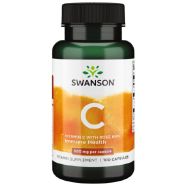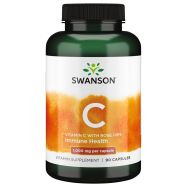category name category name category name
Why take a Vitamin C supplement?

Vitamin C
Vitamin C, also known as ascorbic acid, is an essential nutrient found in many foods. It is a powerful antioxidant that helps protect cells from damage caused by free radicals. Vitamin C is involved in many body functions, including the formation of collagen, absorption of iron, and the immune system.
Vitamin C is an essential nutrient, meaning that the body cannot produce it and it must be obtained through diet or by taking a supplement. The recommended daily intake of vitamin C is 75–90 mg/day for adults. Good sources of vitamin C include citrus fruits, kiwi, strawberries, peppers, broccoli, kale, and papaya.

Vitamin C has many health benefits. It helps protect cells from damage caused by free radicals, which are molecules that can damage cells and lead to a variety of diseases, including cancer and heart disease. It helps the body absorb iron, which is important for red blood cell formation and transporting oxygen throughout the body. Vitamin C also helps the body make collagen, which is important for healthy skin, bones, and connective tissue.
Vitamin C is also important for the immune system. It helps the body fight off infection and disease by increasing the production of white blood cells, which help fight off infection and illness. Vitamin C also helps reduce inflammation in the body.
In addition to its many health benefits, vitamin C is also important for wound healing. Vitamin C helps the body produce collagen, which helps wounds heal faster and makes them less likely to scar. It also helps the body absorb iron, which is important for wound healing.
Overall, vitamin C is an important nutrient that plays an important role in many body functions, including wound healing, immune system health, and protection from free radicals. Eating a diet rich in vitamin C is important for overall health and well-being.
What are the benefits of Vitamin C?
- Boosts immune system: Vitamin C is essential for the proper functioning of the immune system. It helps to protect your body from infection by stimulating the production of white blood cells, which help fight off viruses and bacteria.
- Reduces risk of chronic diseases: Vitamin C has been linked to a reduced risk of chronic diseases, such as heart disease and cancer. Vitamin C helps to protect the cells in your body from damage, which can reduce the risk of diseases.
- Enhances iron absorption: Vitamin C can help to enhance the absorption of iron from plant-based foods. This is especially beneficial for those who follow a vegan or vegetarian diet, who may not be getting enough iron from their diet.
- May help to manage high blood pressure: Vitamin C may help to reduce high blood pressure. Studies have shown that people who consume more vitamin C are less likely to develop high blood pressure.
- Aids in skin health: Vitamin C can help to protect the skin from damage and promote healthy collagen production. This can help to reduce wrinkles, fine lines, and discoloration.
What are the best forms of vitamin C supplements?
- Ascorbic acid powder
- Effervescent vitamin C









